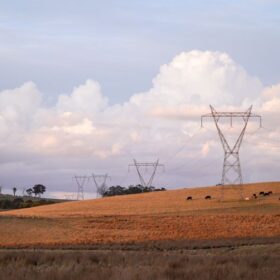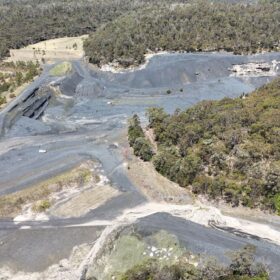A report issued by industry super funds to which over five million Australian workers contribute has signalled that the current energy policy vacuum, at least on the federal level, is delaying action on Australia’s energy transition, and likely pushing up long term costs to consumers and industry. The report, which guides industry super funds long-run investment decisions in Australia’s energy sector takes a holistic approach to the electricity market, albeit with slightly outdated solar PV costs.
Written by economists Stephen Anthony and Alex Coram, Professor Emeritus at the University of Western Australia, the report seeks to outline and advocate for a long-term energy future for its own strategic investment in renewables, new technologies and startups, as well as assisting the government with policy frameworks.
We are facing, the authors write, a “trilemma” of how to balance the generation of cheap energy, reliable energy and low emission energy. To this “trilemma” there is no simple solution, for the future of energy is certain to be a pluralistic one. The extensive report stressed the need for long-term, comprehensive government policy for Australia’s energy transition – yet another sign of significant investor movement towards renewable markets like solar PV in recent weeksand months.
“The lack of a genuine long-term technology neutral energy policy is a major factor undermining fund investment,” the report found. “Industry superannuation funds stand ready to allocate capital towards the electricity sector but need to see governments put in place a comprehensive energy policy framework that deals with reliability, competitiveness and emissions reduction aspects.”
Whilst strongly advocating for investment in solar, wind, and hybrid-hydro investment, industry super funds also push for the government sponsorship of PPAs and the adoption of a carbon price, “to ensure the full social cost of emissions is counted and that markets work properly.” Moreover, even if the long-term system-wide solution to Australia’s energy transition is not yet entirely clear, the ISA notes that current solutions, particularly solar with its viability in the short-term, requires significant investment to cover the fleet of conventional generators that are nearing the end of their operational lives.
However, as the report stresses, that the solution to the “trilemma”, is impossible because the only “politically acceptable investments appear to be relatively small scale.” The authors made note of large-scale solar farms such as California’s Topaz Solar Farm (TSF), though they baulked at its initial costs. However, they did not explicitly consider the rate at which the price of solar PV has fallen, particularly in the five years since TSF became operational.
Without a comprehensive long-term energy policy, the report argues, the cost of network charges will only continue to increase. A partial cause of the increase in charges over the last 10 years has been the continual investment in the outdated transmission network, an “over-investment in poles and wires was passed on to users.” The only hindrance to the drastic rise in prices has been the “installation of solar panels that lowered consumer demand.”
The report found that while solar may be slowing the sky-rocketing energy prices, without an over-arching long-term policy for investors to buy into the market is simply keeping its head above water and the solutions required for Australia’s energy transition will become increasingly difficult to facilitate and enact.
This content is protected by copyright and may not be reused. If you want to cooperate with us and would like to reuse some of our content, please contact: editors@pv-magazine.com.








1 comment
By submitting this form you agree to pv magazine using your data for the purposes of publishing your comment.
Your personal data will only be disclosed or otherwise transmitted to third parties for the purposes of spam filtering or if this is necessary for technical maintenance of the website. Any other transfer to third parties will not take place unless this is justified on the basis of applicable data protection regulations or if pv magazine is legally obliged to do so.
You may revoke this consent at any time with effect for the future, in which case your personal data will be deleted immediately. Otherwise, your data will be deleted if pv magazine has processed your request or the purpose of data storage is fulfilled.
Further information on data privacy can be found in our Data Protection Policy.